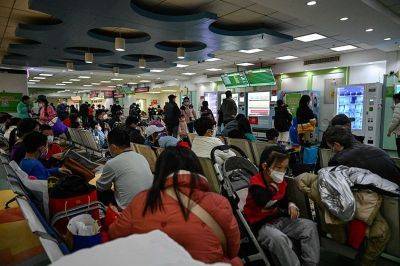Pathogens
For many of us, the dark memory of the COVID-19 pandemic still lingers, as if 2020 was just yesterday, and I’m sure many will agree with me when I say I fervently hope to never see the return of such a period in our lives. But then we never really know.
In a way, the pandemic has changed us and our ways in many ways. I don’t leave the house without a small bottle of alcohol in my bag, spraying my hands often. Whether or not that really helps or if it’s just a habit that gives a placebo effect is anyone’s guess. I’ve also learned to stay away from crowded places or at least I try to and uncomfortable as it is, I still wear masks on airplanes and while transiting in airports.
But even as COVID-19 may be over, the world, the Philippines included, may remain vulnerable to biological threats, including new pathogens.
During a recent trip to the United States, I, along with nine other Filipino journalists, was fortunate to have a briefing with officials from the Defense Threat Reduction Agency or DTRA, which is a unit under the US Department of Defense.
During the briefing, officials shared with us just how vulnerable we could be.
Dr. Rob Pope, director of Cooperative Threat Reduction for DTRA, said that generally, disease-causing pathogens can enter the country or any country for that matter, by several means – from land, air to water transportation.
DTRA is both a defense agency and a combat support agency established to enable the US Department of Defense to deter strategic attacks against the United States and its allies; prevent, reduce and counter weapons of mass destruction (WMD) and emerging threats and prevail against WMDs and armed adversaries in crisis and conflict.
Its Cooperative Threat Reduction (CTR) Department works with international partners to eliminate WMDs and related materials.
CTR has been working with the Philippine government to increase the country’s capability to counter and deter WMDs and the like, through training, risk assessment programs and provision of equipment as well as diagnostic and health security facilities.
The department has been doing this since 2012 through the Proliferation Prevention Program (PPP) in enhancing our





